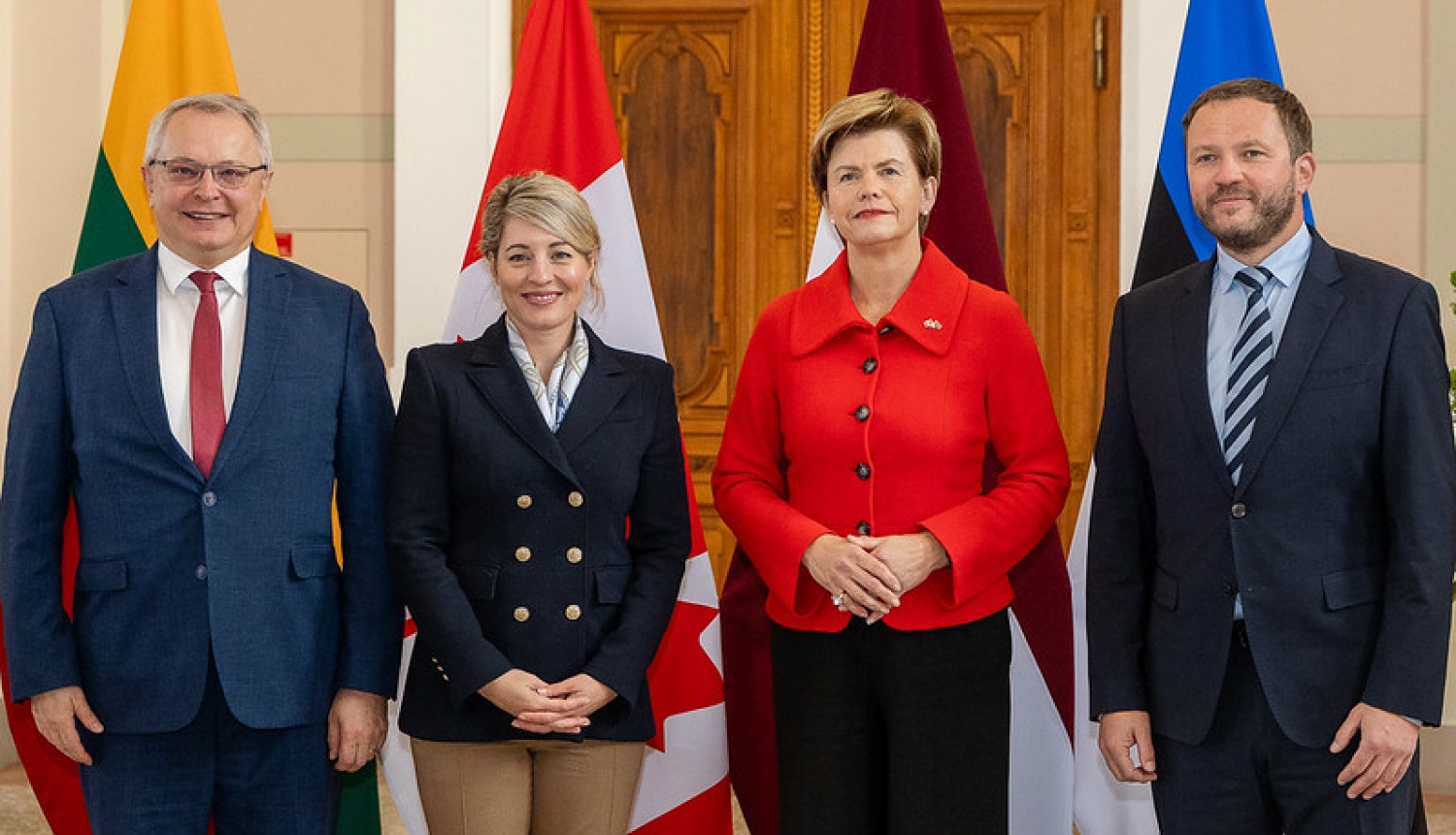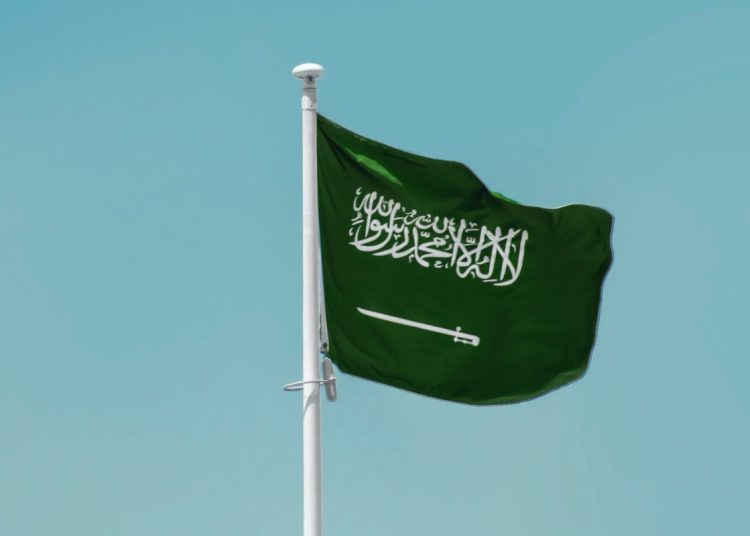Published: 02.12.2024.

Photo: Laura Celmiņa, Ministry of Foreign Affairs
“Canada is an Ally and friend of particular importance to Latvia and the Baltic States, and has a history of protecting our independence. As Latvia’s Ally in NATO, Canada continues providing its essential contribution to our security. I highly appreciate, and offer my thanks to the Canadian Foreign Minister for current cooperation, Canada’s leadership as the framework nation of NATO’s Multinational Brigade in Latvia, and its commitment to remain a security guarantor for Latvia and the entire region. We are stronger together – both in our own security and in support of Ukraine,” Foreign Minister Baiba Braže underlined at the meeting of the Ministers of Foreign Affairs of the Baltic States and Canada in Riga.
On Monday, 2 December 2024, the Minister of Foreign Affairs of Latvia, Baiba Braže, welcomed the Ministers of Foreign Affairs of the Baltic States and Canada to Riga with a view to strengthening dialogue in the “3+1” format on matters of shared interest. This is already the third meeting in the present format. It focused on transatlantic relations, security situation in Europe and globally, Russia’s war of aggression against Ukraine, further support to Ukraine, and cooperation with global partners, including in the Indo-Pacific region. Taking part in the meeting were the Minister of Foreign Affairs of Canada, Mélanie Joly, the Minister of Foreign Affairs of Estonia, Margus Tsahkna, and the Vice Minister of Foreign Affairs of Lithuania, Egidijus Meilūnas.
The visit to Latvia by the Canadian Foreign Minister and a joint meeting of the Baltic and Canadian ministers strongly evidences the commitment of the countries to close transatlantic cooperation. “Transatlantic cooperation is a long-term priority and a cornerstone of Latvia’s foreign and security policy, which includes strengthening the competitiveness of both the NATO eastern flank and the transatlantic area. Latvia is committed to ensuring all the infrastructure required to host the Allied presence,” Baiba Braže underlined.
Baiba Braže also pointed out that there has been Canadian military presence in Latvia since 2017. “The establishment of the Canada-led NATO Multinational Brigade in Latvia is a powerful element of deterrence and defence sending a clear signal of Canada’s commitment to defending every centimetre of the Alliance. The multinational brigade level presence in Latvia strengthens the security of the entire Baltic region and reaffirms the importance of NATO’s collective defence forces. This is particularly important given the permanent security threat from Russia,” the Foreign Minister noted.
Referring to Russia’s war of aggression against Ukraine, the Foreign Minister emphasised that containing of Russia, and providing a robust support to Ukraine lie in the long-term interests of transatlantic partners. “Russia is a long-term threat in the Euro-Atlantic space, and every effort must be made to comprehensively contain Russia – reduce revenues to its economy, thereby undermining its combat capabilities. Russia and those supporting its aggression must be targeted with stronger sanctions,” the Minister noted and also called for increasing contribution to the Allies’ own security.
The Minister spoke highly of the recent Resolute Warrior 2024 exercise, which made it possible to observe the readiness of the Canadian-led NATO Multinational Brigade in Latvia to respond to threat, project its forces, maintain command and control, as well as effective cooperation between member nations. This was the largest exercise under the Canadian leadership implemented in Europe over the past 30 years.
About the NATO Multinational Brigade LatviaThe lead nation of NATO’s Multinational Brigade Latvia is Canada. The brigade currently consists of over 3,500 troops from 13 countries – Albania, Canada, the Czech Republic, Denmark, Italy, Iceland, Latvia, Montenegro, North Macedonia, Poland, Slovakia, Slovenia, and Spain. 600 personnel of the Swedish Armed Forces will be also sent to Latvia in the early 2025. There are 1886 Canadian troops in the NATO Multinational Brigade.
During his visit to Latvia in 2022, the Canadian Prime Minister Justin Trudeau announced an extension and expansion of the mission to Latvia (without an end date). On 10 July 2023, during his third visit to Latvia, Mr Trudeau announced a contribution of 2.6 billion Canadian dollars to Latvia by 2026 to increase Canada’s presence in Latvia and develop infrastructure.
Further information











